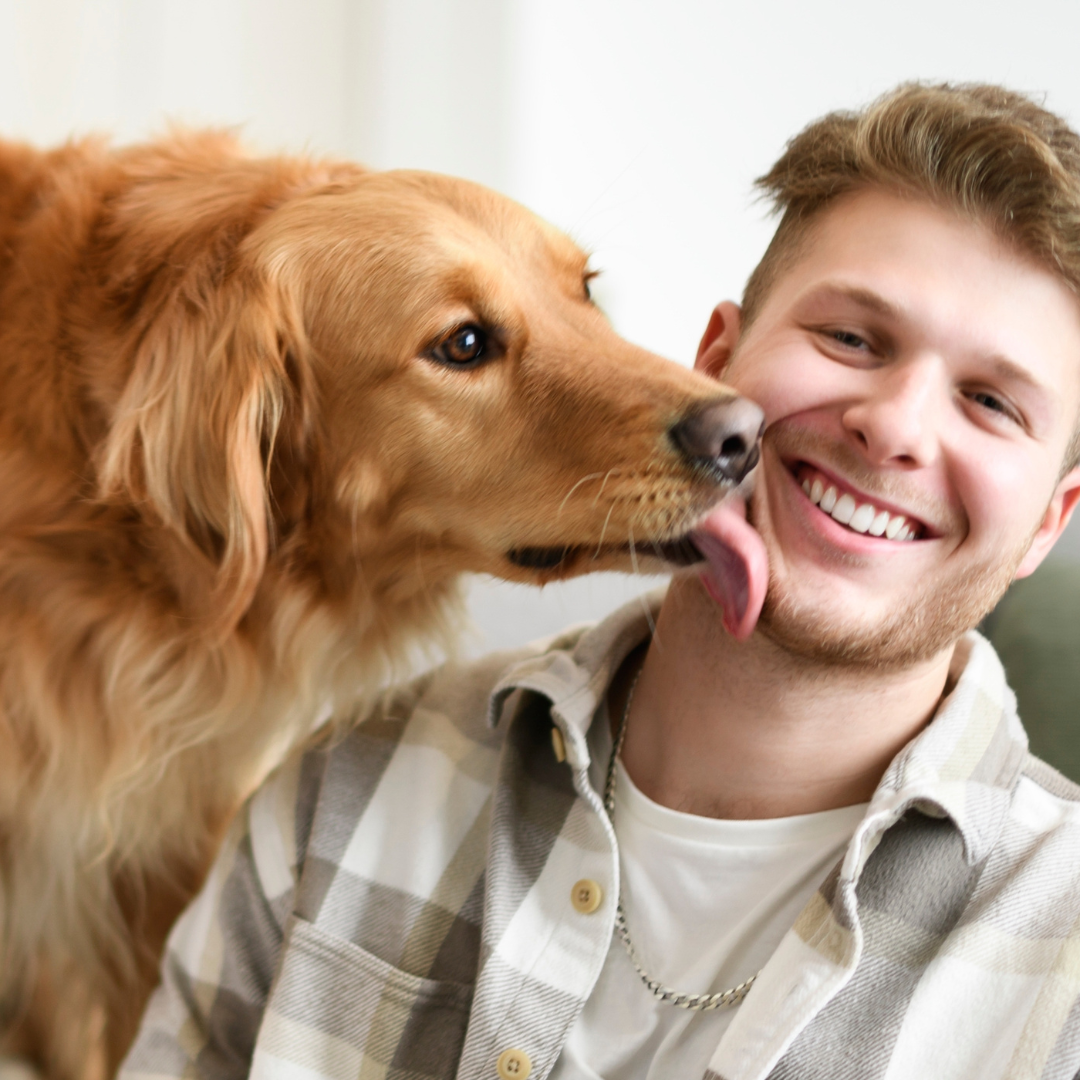Dogs often lick their human companions for various reasons, primarily as a form of communication and interaction. Understanding these motivations can enhance the bond between you and your pet.
Affection and Social Bonding
Licking is a natural behavior that dogs use to express affection and strengthen social bonds. From puppyhood, dogs experience licking as a comforting action from their mothers, which they may extend to their human family members as a sign of love and attachment.
Exploration and Sensory Information
Dogs rely heavily on their senses of taste and smell to explore their environment. Licking allows them to gather information about their surroundings and the people they interact with. Your skin may carry various scents and tastes that intrigue your dog, leading to licking as a method of investigation.
Attention-Seeking Behavior
If your dog notices that licking garners your attention—whether through laughter, petting, or verbal responses, they may continue the behavior to engage with you. Dogs are social animals and quickly learn actions that result in interaction.
Taste Preferences
Human skin can be salty, especially after physical activity, which dogs might find appealing. This salty taste can encourage licking as your dog enjoys the flavor.
Stress Relief and Comfort
Licking can be a self-soothing behavior for dogs, helping them cope with stress or anxiety. The act releases endorphins, promoting a calming effect. However, excessive licking may indicate underlying issues such as anxiety or obsessive-compulsive tendencies.
Instinctual Behavior
In the wild, canine species exhibit licking behaviors related to pack dynamics and survival. For instance, wolf pups lick their mothers’ mouths as a signal to regurgitate food. Domestic dogs may retain this instinctual behavior, manifesting as licking their human companions.
When Licking Becomes a Concern
While licking is generally harmless, excessive or compulsive licking can signal medical or behavioral issues. If your dog persistently licks themselves, objects, or people, it may be advisable to consult a veterinarian or animal behaviorist to rule out health problems or address anxiety-related behaviors.
Managing Unwanted Licking
If you prefer to discourage your dog from licking:
- Ignore the Behavior: Withhold attention when your dog starts licking to avoid reinforcing the action.
- Redirect Their Focus: Engage your dog with toys, commands, or activities to divert their attention from licking.
- Consistent Training: Establish and maintain clear boundaries regarding licking to help your dog understand acceptable behaviors.
Understanding the reasons behind your dog’s licking can foster better communication and strengthen your relationship, ensuring both you and your pet are comfortable and happy.

